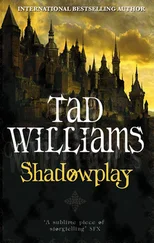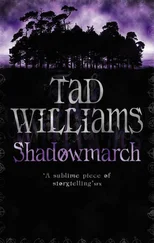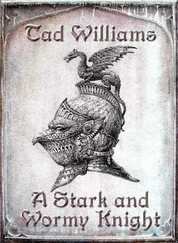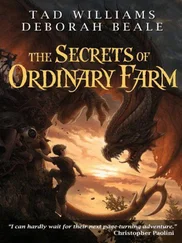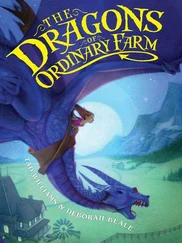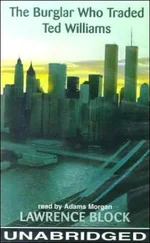“To Princess Briony from her friend and servant, Idite ela-dan-Mozan, greetings.
On the night of the fire, we were able to bring the great man Shaso dan-Heza out of the flames of my husband’s house, may the Great Mother guide and protect them both on their journeys. Shaso had taken great injury fighting with the men who set the fire, giving the women, children, and others a chance to escape the destruction, but he lived long enough to ask after your safety. When we told him you could not be found but had not been captured, he seemed satisfied, and died without saying more. Shaso was a man of great honor and wisdom. Tuan and Southmarch are both sadder places for his loss. ...”
Dawet lowered the letter and turned to Briony. “I have returned a great man to Southmarch, my lady, so my ship bears his insignia. I am dressed in mourning because I bring back only his ashes.” He lowered his head. “Princess, I come to confirm what was heretofore only a sad belief. Shaso dan-Heza is dead.”
* * *
“Are you certain we are allowed to be here?” Opal asked again. Even the stolid presence of Brother Antimony did not seem to reassure her. The Tower of Summer, at the very heart of the castle, was not the kind of place where most Funderlings would ever feel comfortable, even though their ancestors had helped build it.
“The Big Folk owe a debt to the Rooftoppers now,” said Brother Antimony. “I do not think they would grudge their use of an abandoned tower.”
“Be grateful,” Chert told his wife as they trooped up past another closed room. “When I wanted to visit them, I had to climb onto the roof.”
“You? At your age? What were you thinking?”
“Fracture and fissure, woman, I’m not that old.”
But he knew she didn’t really mean it—like him, she was struggling to make sense of a world that had gone completely downside-up. Funderling Town remained a madhouse, with some neighborhoods still sealed off by the Guild and patrolled by the Big Folk’s royal guards until the last of Durstin Crowel’s men were rounded up. Almost every home had at least one survivor of the war, many of them wounded, not to mention all the surviving monks who had lost not just the Mysteries themselves but their temple home as well—and that, of course, had been mostly Chert’s doing. And even though many of Funderling Town’s citizens regarded flooding the depths as a heroic, brilliant act that might well have saved all their lives, Chert and Antimony and the engineers that had accomplished it were now despised by the most traditional and conservative of their kind, including the Metamorphic Brothers, many of whom had made it clear that Chert Blue Quartz would never be forgiven for what he (as they saw it) had taken from them.
“Here,” he said as they reached the final landing. He pushed open the door. “The top floor.”
Opal went through first. “Oh,” she said in a faint voice. “Oh, look how many … !”
We’ll be attending quite a few more of these, Chert thought. A vast assembly of such unhappy gatherings, funerals and memorials for fallen friends, awaited them in the days ahead. But in truth, he decided, what they watched now was more than a bit like a Funderling memorial ceremony, but one seen from the very back row of the guildhall: the tiny figures came out and performed their parts, but he and Opal could scarcely hear them and had to guess at what was being said and done. There was no coffin, of course, and no image of Beetledown the Bowman that he could see either, but the Rooftoppers’ tiny voices were convincingly somber and the attitude of the mourners indisputably sad. Chert’s friend had been well-loved by his people, that was clear, and understanding this reminded him that he would never see Beetledown’s tiny, friendly face again. It was strange, because he had never known whether the little scout was married or had children, so he could scarcely claim to have been close to him, but they had been through adventures together nobody else could even imagine, let alone claim to have shared.
Chert found himself suddenly dabbing at his eyes with his sleeve, trying to hide what he was doing from Antimony and Opal. Because of this, he did not see the queen of the Rooftoppers’ first steps out into the center of the empty fireplace, but he heard the tiny shell trumpets that announced her and hastily finished wiping away his tears.
She stood, smaller than a child’s doll, in a beautiful dress of stiff, shiny fabric studded with beads so small Chert could scarcely even make them out. Beside him, Opal took a deep breath.
“My,” his wife whispered, “isn’t she so pretty!”
“That’s the queen,” he whispered back.
“Don’t you think I could tell, you old fool?”
“Her most Insidious and Unalloyed Majesty, Upsteeplebat the Queen!” announced a crier the size of a darning needle, then blew on his fluted shell trumpet again.
“Upsteeplebat?” Opal murmured. “What kind of name is that?”
“Hush.”
The queen looked up into the heights of the room—or so it must have seemed to her—where the faces of her giant guests loomed like three moons hanging in the sky. She nodded in a way that suggested that she was glad to see them, but she directed her words to the crowd of mourners.
“I do not come here to lament over the death of Beetledown the Bowman, chief of my Gutter-Scouts,” she began in a surprisingly loud, high voice, “because we know that he is with the Hand of the Sky in the heights above the heights, and in that attic of delight there is no sadness, no pain.
“But I do stand before you to say that we will miss him, because our love for him was fierce—as was his love for his race and his nation, from the tip of the Iron Needle to the depths of the terrifying earth, from the Great Wainscoting to the fields of the South Roofs where our sky-steeds graze. Beetledown gave the greatest gift he had so that these things could survive, and so you and I could see our people prosper in a world that so often taxes us with hardship, but which is nevertheless the only world we the living have. ...”
“She speaks wondrous well,” whispered Antimony.
“She is their queen,” said Chert. “She is altogether admirable.”
Opal gave him a look that he could feel without seeing. “Admirable, is she?”
“She is their queen and a goodly one, that is all I am saying!”
“Bad enough you are a troublesome old dog who likes to roam,” she said with quiet intensity, “but when you cast your eye on a woman no bigger than a baby’s rattle… !”
“Oh, stop.” He was mortified, and fearful that their voices might carry farther than they guessed among such small, sharp-eared creatures. “That is nonsense, woman, and you know it.”
Opal sniffed, but fell silent again.
“… And without a moment’s hesitation, after all that he had already given to his people and his queen, he said he would do it.” Upsteeplebat was still extolling Beetledown’s virtues. “Let those who are children this day look to his example—no finer one could have been set for you.”
The thought of children made Chert’s heart grow even heavier. Opal was not really angry with him, he knew, nor did she believe for a moment he felt anything for the tiny queen of the Rooftoppers. She was angry at him for letting Flint go, and angry at herself more than at him. This day’s ceremony was no doubt reminding her of the day the boy had disappeared, that he had last been seen helping Beetledown escape a deadly attack to reach Antimony with the Astion, and that shortly after that sighting everything beneath that place, including the spot where Flint had been, had vanished in a remorseless crush of water. Corpses were still drifting up to the surface of the Salt Pool from its new tributaries below, bodies of Funderlings and Xixians and Qar alike. Chert knew Opal was terrified that Flint’s fate had been the same as theirs, that their house would be one of those to receive a visit from a gang of men carrying a dripping body on a covered bier.
Читать дальше




